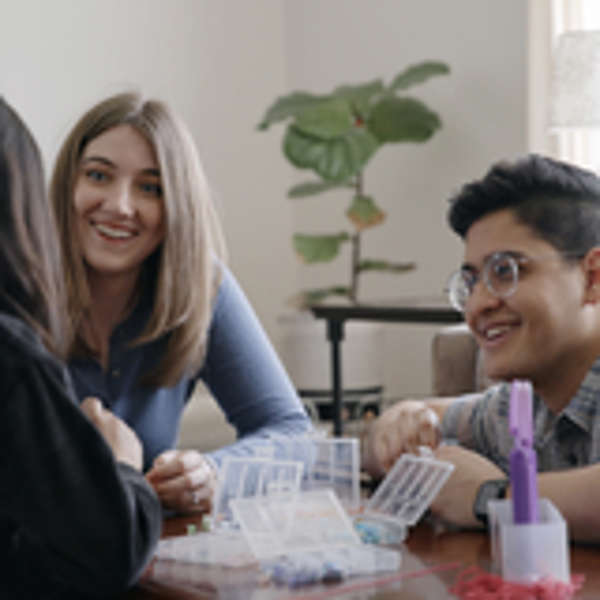As a new foster parent, is it OK to ask for help?
Your foster care and licensing specialists are here to help
Erin Alderman, licensing and placement specialist

“I don’t know how much I should bother my foster care workers.”
“I don’t want to annoy them.”
“I don’t want to be that foster parent.”
“I don’t want them to think I’m weak or can’t handle this.”
“Wait … should I be able to handle this?”
I regularly hear these questions from new foster parents. If you’re asking them too, it’s normal!
A lot of people have a hard time asking for help. Maybe they’ve never had to ask for parenting help before and they may not be used to reaching out for support. Some may be afraid others will think they don’t know what they’re doing or they’re not doing a good job.
You’re not in this alone!
As you begin your foster care journey, your foster care and licensing specialists are here to help.
Expect to need extra support
New parents with new biological children often need extra support. This is also true for foster parents when each new child comes into your home, especially if a child has additional needs.
Never, ever be afraid to ask for help
It’s important to keep your foster care specialist up to date on the child’s needs so they can support you.
Social workers will tell you they’d rather have too much information about what you’re experiencing at home than not enough. We can help you much sooner when we know early on there’s a problem.
We can’t help if we don’t know.
Taking your call is our job
We’re here to help meet the child’s needs and to help you meet the child’s needs. We do this every day.
We understand foster care is new to you, especially if this is your first experience. We can help you determine what behavior is age-appropriate and what is the result of trauma.
Lean on your team
Daily, repetitive parenting tasks can leave you feeling alone.
Remember, you’re surrounded by a team of professionals ready to support you and your child. Your team might include foster care workers, foster care supervisors, licensing specialists, licensing supervisors, doctors, therapists, and other service providers.
Besides the child's parents, you will likely know most about the child in your care because you’re with them every day. The professionals on your team can connect you to the resources you need.
Don’t forget your licensing specialist
Your licensing specialist is assigned to you as the foster parent. If you have general questions, need resources or advice, or are unsure when to contact the child’s foster care specialist, ask your licensing specialist first.
As a licensing specialist, I help foster parents get support when they’re feeling overwhelmed. I help them find counseling and support groups, encourage them to use substitute caregivers, and connect them to other foster families.
Consider additional training
While required foster parent training covers general topics like creating a safe home for children, it doesn’t dive deep into parenting a child with trauma history.
I often recommend that foster parents take a trauma-informed parenting class. This class has eight modules and is co-taught by a foster care professional and a foster parent.
Additional training may also be available for a specific need, or you may benefit from a training refresher if you think it would be helpful.
As you get more foster parenting experience, you’ll feel more comfortable. But when you’re new—or any time a new child is in your home—we hope you’ll be contacting your foster care or licensing specialist a lot at the beginning.
It takes time and patience to learn the foster care system and manage paperwork you’ve never completed before. Beyond that, your family dynamic will be changing to accommodate a child who will likely have some additional needs. It’s a big adjustment.
There’s a big learning curve to foster care, and you’ll need help. That’s why we’re here to support you—every step of the way.



